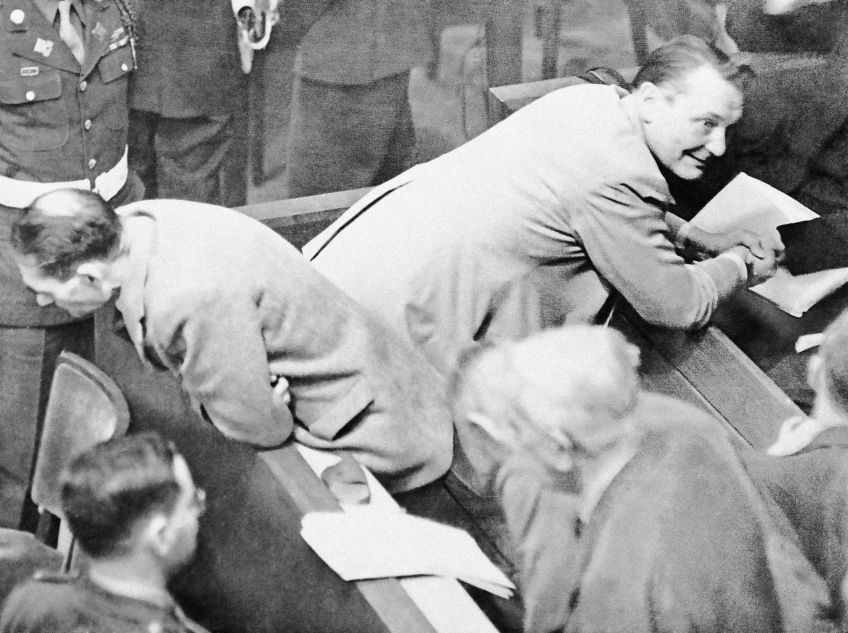On 15 February 1946, following the afternoon session at the Palace of Justice, the American military psychologist Gustave Gilbert, who was working with the defendants, introduced them to new regulations. Henceforth, any contact between the defendants outside the courtroom was prohibited. Up until then, they had been able to socialise during lunchtime between morning and afternoon sessions and while walking in the prison`s yard.
The American administration made this decision to eliminate the influence of Hermann Göring on other defendants. The ‘No. 2 Nazi’ had put pressure on the accomplices: he intimidated them, demanding that they voice statements in his favour in court. Göring persistently demonstrated his loyalty to the Führer and in every possible way tried to make others do the same. Some of the accused confessed to Gilbert that Göring was downright tyrannical. Therefore, they were relieved to accept the new routine: “It’s very good that we were separated. Even now I can say more of what I intended to say,” Albert Speer admitted.
Prison Commandant Colonel Burton Andrus asked Gustave Gilbert to draw up a new seating arrangement for the defendants at lunch. The new arrangement was drawn up, bearing in mind the psychological sensitivity and character of the various defendants. Six categories were formed. The last one was personally for Göring:
1. ("Youth Lunchroom") Speer, Fritzsche, von Schirach, Funk (the purpose being to let Speer and Fritzsche wean the other two away from Göring's influence, and to give even von Schirach a chance to declare that Hitler had betrayed the German Youth and that his racial policy was catastrophic for German).
2. ("Elders' Lunchroom") von Papen, von Neurath, Schacht, Doenitz (the purpose being to give the old conservatives a chance to denounce Hitler and Ribbentrop with encouragement from Schacht, and letting Doenitz get some of their influence so that he isn't kept in conflict with "Offiziersehre").
3. Frank, Seyss-Inquart, Keitel, Sauckel (the purpose being to take Keitel away from Göring and let him get a sample of Frank's impassionate denunciation of Hitler, guilt displacement and confession. In general, a group which would not communicate much and would on occasion show some consciousness of their guilt).
4. Raeder, Streicher, Hess, Ribbentrop (the intractable Nazis who would not be apt to talk to each other even if allowed, because of Streicher's presence and Hess's secretiveness, Raeder's security-consciousness, Ribbentrop's frustration — keeping them neutralised).
5. Jodl, Frick, Kaltenbrunner, Rosenberg.
6. Göring.
























